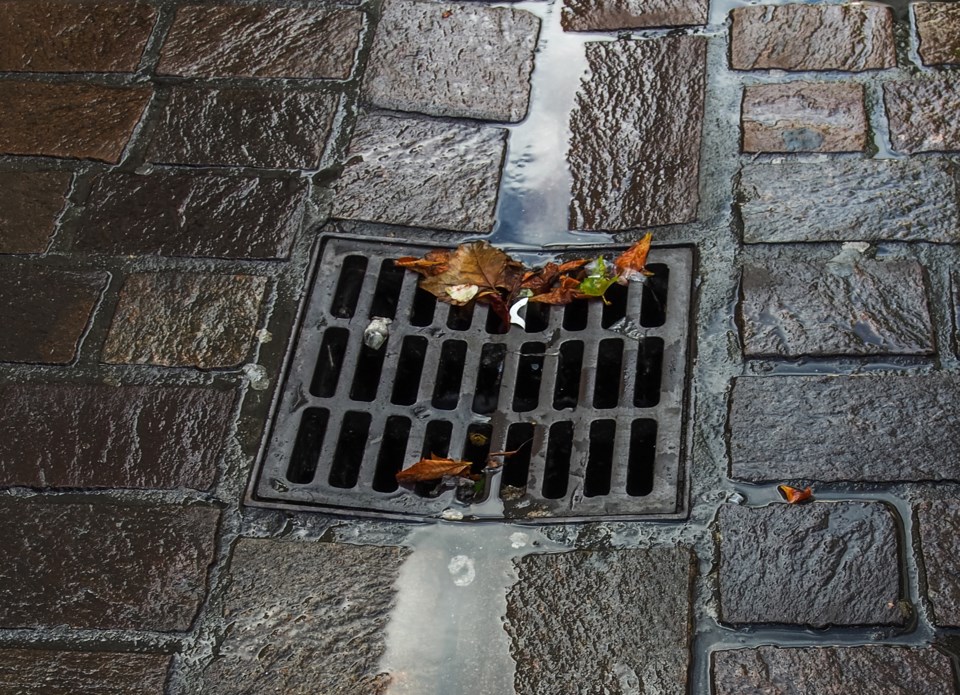Changes are coming to the way Cambridge collects fees to pay for its stormwater system and residents will notice those changes on their water bills starting next July.
That's when stormwater fees, currently allocated from the property tax levy, will shift to water bills, a move the city says will save taxpayers some money.
An average home currently pays about $58 every six months for stormwater through property taxes. That bi-annual fee will drop to $23 next July, giving average-sized property owners a savings of $70 per year, explained Sheryl Ayres, chief financial officer at the City of Cambridge.
The change, she said, will more accurately reflect the cost of each property's rainwater runoff.
The reason the city is calculating it over a six-month period is because the new charges will begin July 1, 2025.
That's when residents in average size homes can expect to see a $3.83 increase per month for stormwater on their water bills.
Residents will continue to pay a flat rate for stormwater regardless of house size as the city calculates the cost based on total property size.
There are six categories for properties, small, medium and large residential and small, medium and large non-resdiential.
According to the city, the majority of properties in Cambridge are small residential with a size of less than 0.2 hectares. These property owners paid a flat rate of $36.79 for stormwater in 2024 and in 2025 can expect to pay $45.23 annually.
Looking at municipalities like Kitchener and Waterloo for inspiration, the City of Cambridge will also have a rebate program, but only for commercial or other large buildings.
Unlike those cities, Ayres said there will be no rebates offered to residents who use rain barrels, cisterns and permeable driveways to mitigate runoff into the stormwater system. Depending of the size of those mitigation efforts, residents in Kitchener can get up to a 45 per cent rebate on their stormwater fees.
"We decided to kind of scope it right now and not do quite as extensive a program as what some other municipalities have, because it's a significant impact on staffing resources," Ayres said.
The more staff needed would increase taxes further, said Ayres, adding residents will still have the opportunity to give input on the change and what they would like to see in the future.
In comparison, Kitchener residents pay by building footprint, number of units and square footage of permeable areas. A small detached home in Kitchener with a building footprint size of 105 m2 or less will cost $12.07 a month or $144.84 annually.
Larger commercial sites and manufacturers will be eligible for rebates in Cambridge as their cost for stormwater management will be significantly more than a residential home.
For example, the Cambridge Centre Mall sits on 38.8 acres of land and according to the non-residential rate per acre of $697.40, they will be paying an estimate $26,820.56 in stormwater charges.
Those who live in apartment buildings or shared residences and rely on property owners to send them the water bill will have to negotiate with the landlord on how to split the increase in cost.
A letter sent to the city by a resident as part of this week's budget input session asked how this cost would be split among the tenants and how the stormwater would be metered per resident in the home.
"As a tenant, I am not sure how passing stormwater from homeowner property tax to the water bill is an appropriate tenant expense," reads the letter.
Ayres said Cambridge currently requires landlords or property owners to pay water bills since water is considered an essential service. In some cases tenants could be required to pay it if agreed upon in a rental contract.
"We can set up the bill in the name of the tenant as well as the owner, but typically we bill the owner and then it's between them in their rental agreement," she said.
The city is undergoing a review process for water billing to determine if the current system should shift the responsibility to tenants, similar to hydro and other services. Stormwater will be a part of that discussion, Ayres said.
The city will continue to take feedback for its newly appointed water billing task force and during budget discussions.
For the upcoming tax year, it'll be status quo, said Ayres.
If demand is high to consider rebates on the stormwater fee, Ayre's said it's something the city could consider while reiterating the cost impact.
To learn more about the way residents are billed for water and to read the proposed 2025 budget, visit the city's website.




